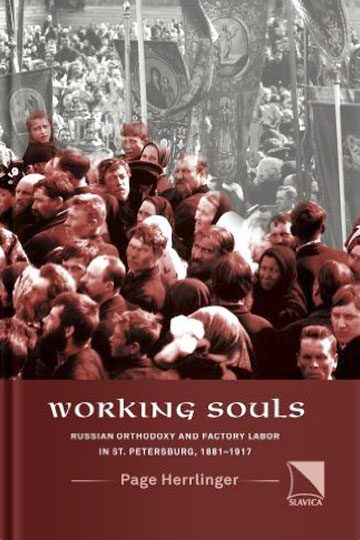
- Publisher: Slavica Publishers, Indiana University
- Available in: Paperback
- ISBN: 978-0893573393
- Published: April 30, 2008
In spite of the central role played by worker-atheists in the revolutionary narratives of 1905 and 1917, the majority of Russian workers in the late Imperial era continued to view their lives and the society around them through the prism of religious belief, even in St. Petersburg, the most secularized and radical city in the Empire. This book is devoted to their story; while by no means overlooking those who abandoned their faith, it gives voice and visibility to workers who reacted to the material and spiritual poverty of the “modern” factory in fundamentally religious, though often un-Orthodox, ways. Drawing on a wide range of archival and published sources, this study explores the extent to which the various components of workers’ religious identity–their practices, sensibilities, communities, and beliefs about God, self, and society–were transformed by the experience of urban factory life. At the same time, it looks at the myriad ways in which the spiritual needs and demands of the working-class laity precipitated changes in the practice of Orthodoxy–how rituals were adapted, identities reshaped, and communities restructured–enabling the faith to “survive” in the urban factory environment not just as an archaic remnant of rural consciousness and practice, but as an evolving and sometimes essential dimension of worker culture. No less importantly, this book focuses on the response of the Orthodox clergy to workers’ religious and spiritual struggles, with particular emphasis on the moral complexities posed by the crisis of labor in 1905. Finally, “Working Souls” highlights the religious dimensions of the emerging labor and revolutionary movements, and in so doing, reveals important intellectual and moral parallels between the popular spiritual and political revolutions of 1905-17.
Reviews
Based on “new and fascinating material, drawn from archives, the contemporary religious press, and memoirs,” [“Working Souls”] “constitutes a sensitive and nuanced reconstruction of the texture of worker religious culture in St. Petersburg in the last decades of the old regime,” and “illuminates vital aspects of the history of labor in late-imperial Russia that were seriously neglected in the heyday of labor history.”
–Steve Smith, University of Essex
Well-written, broadly researched, and insightful, this book offers a sensitive, multifaceted exploration of religiosity in the Russian working class in the turbulent revolutionary years of the early twentieth century.
–Gregory Freeze, Brandeis University
With lively sympathy for her subjects, Herrlinger recreates the pressures factory workers faced, and explores what going to church–or not–might have meant. Workers might go to confession and communion on Easter–and to union meetings; they might follow Gapon, or the combination of Scripture and sobriety preached by Ioann Churikov, or all of the above. They might welcome the stability that Orthodoxy represented in their changed lives, or they might welcome the opportunity to do without it. Women and men might make very different choices. Until the Bolsheviks shot Father Ornatskii in 1918, the picture is one of remarkable plurality and diversity.
Herrlinger’s sucess comes in no small part from her thorough and imaginative use of sources. Along with archives and periodicals, her use of workers’ memoirs is particularly careful. … It takes some subtlety to read between the lines as Herrlinger does, to listen to what [workers] do not say, or to look at a seemingly bald statement from a different perspective. “Working Souls” is one of the finest studies of Russian workers in years.
–Nadieszda Kizenko, “The Russian Review”